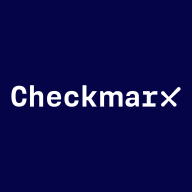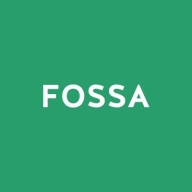

FOSSA and Checkmarx Software Composition Analysis both compete in the realm of open-source software management. FOSSA appears to have the upper hand due to its seamless integration into build pipelines and high compatibility with developer ecosystems.
Features: FOSSA is known for its robust dependency scanning features during build-time, seamless integration into build pipelines, and high compatibility with various developer ecosystems. Checkmarx offers comprehensive security scans, early-stage vulnerability detection in open-source applications, and strong integration with developer tools.
Room for Improvement: FOSSA could enhance distribution acknowledgments, implement snippet matching, and improve security vulnerability scanning. Checkmarx needs to address the speed of updates, improve the user interface's efficiency, and offer more competitive pricing.
Ease of Deployment and Customer Service: FOSSA offers flexible deployment options across Public Cloud and On-premises environments with excellent support. Checkmarx supports various deployment options but has experienced some scaling and response time challenges, although the support has improved over time.
Pricing and ROI: FOSSA's pricing is competitive but mid-range, with costs often justified by the benefits provided. Checkmarx's pricing is higher with a complex licensing model. Both products are seen to generate substantial ROI, with FOSSA recognized for its operational benefits.
| Product | Market Share (%) |
|---|---|
| Checkmarx Software Composition Analysis | 2.6% |
| FOSSA | 3.1% |
| Other | 94.3% |


| Company Size | Count |
|---|---|
| Small Business | 7 |
| Large Enterprise | 8 |
| Company Size | Count |
|---|---|
| Small Business | 5 |
| Midsize Enterprise | 1 |
| Large Enterprise | 8 |
Checkmarx Software Composition Analysis (SCA) helps organizations manage the risks associated with open source and third-party components in their software applications. While leveraging open source libraries and third-party dependencies is common practice, it can also introduce security vulnerabilities and license risks.
Checkmarx SCA offers a multifaceted approach to managing these risks by:
Automatically scanning project repositories, build configurations, and manifests to create a comprehensive inventory of all components, including version information and associated licenses.
Performing vulnerability assessments on each component, including identifying and prioritizing actual exploitable or reachable vulnerabilities.
Protecting organizations from software supply chain attacks involving malicious packages, such as the XZ Utils backdoor.
Identifying licenses associated and providing insights into license obligations, restrictions, and potential conflicts.
Integrating seamlessly into existing development workflows and CI/CD pipelines.
Providing actionable remediation guidance to help organizations address identified vulnerabilities and compliance issues effectively.
We monitor all Software Composition Analysis (SCA) reviews to prevent fraudulent reviews and keep review quality high. We do not post reviews by company employees or direct competitors. We validate each review for authenticity via cross-reference with LinkedIn, and personal follow-up with the reviewer when necessary.